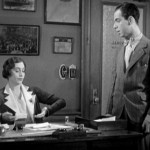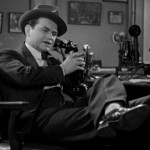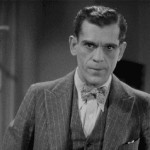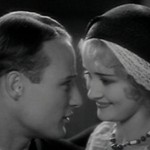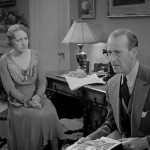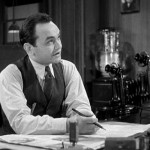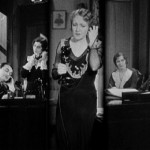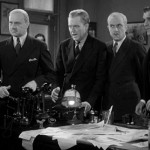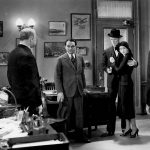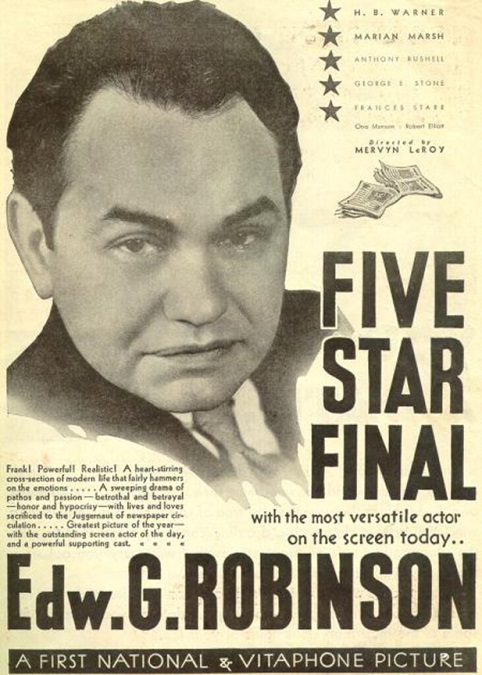
Five Star Final – 1932
This was a movie that was well-made and interesting to watch. It had some great emotional content, an interesting and unique story, and some pretty good acting from most of the cast. However, there was a definite flaw in the movie. This was 1932, and some, though not all, of the actors were still using those over-exaggerated facial expressions that had been necessary before the talkies. A few of the actors behaved like clowns while the rest of the cast behaved normally.
The movie’s big name star was Edward G. Robinson. He was great as newspaper editor, Joseph Randall. He had been in the business for a long time and wanted to earn enough money on which to retire. He gets a chance for a big score when his boss, newspaper publisher, Bernard Hinchecliffe, played by Oscar Apfel, tells him to dig up a story that had been laid to rest twenty years earlier, that of a secretary who had murdered her boss who had gotten her pregnant, and then refused to marry her. Though he is uncomfortable with the moral implications of his boss’s demand, he cannot resist the money involved.
The secretary’s name is Nancy Voorhees, played by Frances Starr. She has since remarried to a man named Michael Townsend, played by H. B. Warner. Nancy’s daughter, Jenny, played by Marian Marsh, is now grown and is engaged to Phillip Weeks, played by Anthony Bushell, the son of a high-class family. To dig up the dirt on Nancy, Randall sends out a few of his sleazy reporters, one of whom is Vernon Isopod, played by Boris Karloff.
And there’s the set-up. What follows is a film that is played out like a social commentary on the evils of tabloid journalism. The underhanded and unscrupulous lengths to which Randall and his reporters go to get their story is shown in a very negative light. They mercilessly invade the family’s privacy through lies, intimidation, and manipulation. They carelessly destroy the family, even to the point where Nancy and her husband commit suicide from the shame of the scandal.
The final scene in the movie was the best scene in the film. Jenny, distraught and hysterical over the deaths of her parents takes a gun to Mr. Randall’s office at the newspaper, intending to murder Randall and Henchecliffe for ruining her life. She screams at them, asking them over and over why they murdered her mother. Henchecliffe feels no remorse and wants the unfortunate girl to go away. Randall feels so much guilt that he admits to the murder. It was a surprisingly powerful scene that was a fitting climax to the film.
The stand-out members of the cast were, Robinson, of course, but also Frances Starr and Marian Marsh. Starr had a difficult role to play. She was caught between remorse, regret, fear, and hopelessness, and she really did a great job in her portrayal. She wasn’t over-the-top or one-note. Marsh really did a fantastic job, especially in that climactic scene. Again, she was deeply emotional without giving us too much. Well done, ladies!
Another lady who did a good job was Randall’s secretary, Miss Taylor, played by Aline MacMahon. She played the stereotypical sarcastic lady. She was like Randall’s conscience, making the cute wisecracks at all the right moments, and telling him that it was wrong for him to destroy the Townsend family just to sell more newspapers. MacMahon played her part well.
But as I mentioned earlier, I have to shake my head at the buffoonish, silent-era performances by some of the actors, two in particular. First was Harold Waldridge, playing the part of Arthur Goldberg, a company gopher who wants to be a reporter, and second was George E. Stone, playing the part of Ziggy Feinstein, the paper’s contest columnist. Everything was so overdone it was almost nauseating. True, they were not the only two, but they were the worst offenders.
One of the things that the film’s advertisements points out is that this is a pre-code era movie, meaning that it was made before the Hayes code was put into effect. It didn’t show any nudity, but it did make several bawdy references to making love, something that the Hayes code discouraged. And you have to really listen to some of the fast-pace dialogue to hear all the quick one-liners. And it would also help to be aware of some of the lingo that was unique to the late 20s and early 30s.
